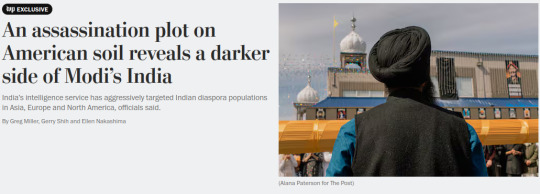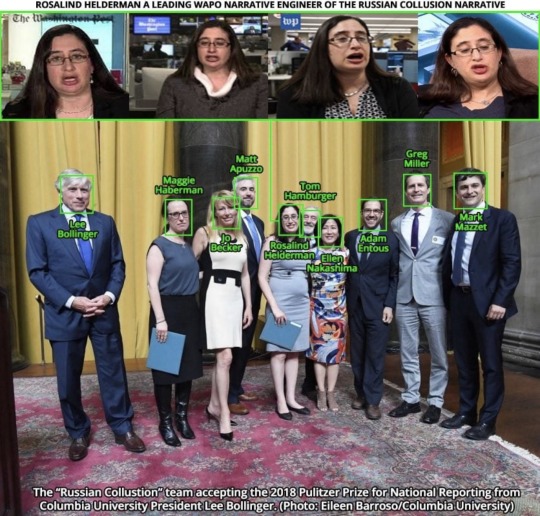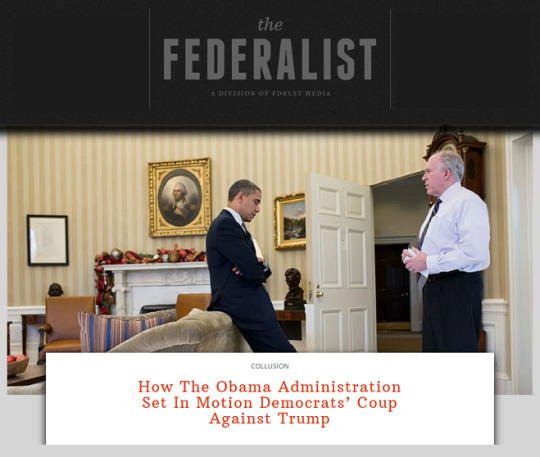#Ellen Nakashima
Explore tagged Tumblr posts
Text

Rick McKee, Augusta Chronicle
* * * *
LETTERS FROM AN AMERICAN
November 11, 2024
Heather Cox Richardson
Nov 12, 2024
The day after Donald Trump won the 2024 presidential election, Afghanistan’s Taliban offered its congratulations to the American people for “not handing leadership of their great country to a woman.”
Taliban leaders expressed optimism that Trump’s election would enable a new chapter in the history of U.S-Taliban relations. They noted that it was Trump who suggested a new international order when he inked the February 29, 2020, Doha Agreement between the U.S. and the Taliban. That deal cut out the Afghan government and committed the U.S. to leave Afghanistan by May 2021, closing five military bases and ending economic sanctions on the Taliban. This paved the way for the U.S. evacuation of the country in August 2021 and the return of the Taliban to power.
The Taliban prohibits girls’ education past the sixth grade and recently banned the sound of women’s voices outside their homes.
In Russia, Russian thinker Alexander Dugin explained the dramatic global impact of Trump’s win. “We have won,” Dugin said. “The world will be never ever like before. Globalists have lost their final combat.” Dugin has made his reputation on his calls for an “anti-American revolution” and a new Russian empire built on “the rejection of [alliances of democratic nations surrounding the Atlantic], strategic control of the United States, and the rejection of the supremacy of economic, liberal market values,” as well as reestablishing traditional family structures with strict gender roles.
Maxim Trudolyubov of the Wilson Center, a nonpartisan foreign affairs think tank, suggested Friday that Putin’s long-term goal of weakening the U.S. has made him more interested in dividing Americans than in any one candidate.
Indeed, rather than backing Trump wholeheartedly, Russian president Vladimir Putin has been undercutting him. He did not comment on Trump’s election until Thursday, when he said that the power of liberal democracies over world affairs is “irrevocably disappearing.” Although Ellen Nakashima, John Hudson, and Josh Dawsey of the Washington Post reported that Trump and Putin had spoken on Thursday, Putin denied such a call as “pure fiction.”
Exacerbating America’s internal divisions and demonstrating dominance over both the U.S. and Trump might explain why after Trump became president-elect, laughing Russian media figures showed viewers nude pictures of Trump’s third wife, Melania, taken during her modeling career.
In an interview, Putin’s presidential aide Nikolay Patrushev said today: "To achieve success in the election, Donald Trump relied on certain forces to which he has corresponding obligations. As a responsible person, he will be obliged to fulfill them." Meanwhile, U.S. and Ukrainian officials report that Russia has massed 50,000 soldiers, including North Korean soldiers, to reclaim territory in the Kursk region of Russia taken this year by Ukrainian forces.
Trump claims to have talked to about seventy world leaders since his reelection but has declined to go through the usual channels of the State Department. This illustrates his determination to reorganize the federal government around himself rather than its normal operations but leaves him—and the United States—vulnerable to misstatements and misunderstandings.
The domestic effects of Trump’s victory also reveal confusion, both within the Republican Party and within national politics. Voters elected Trump and his running mate, Ohio senator J.D. Vance, but it’s hard to miss that billionaire Elon Musk, who backed Trump’s 2024 campaign financially, seems to be “Trump’s shadow vice-president,” as Nick Robins-Early of The Guardian put it. Sources told CNN’s Kaitlan Collins that Musk has been a constant presence at Mar-a-Lago since the election, sitting in on phone calls with foreign leaders and weighing in on staffing decisions. Yesterday at Mar-a-Lago, Musk met with the chief executive officer of the right-wing media channel Newsmax.
Exactly who is in control of the party is unclear, and in the short term that question is playing out over the Senate’s choice of a successor to minority leader Mitch McConnell (R-KY). In the new Congress, this Republican leader will become Senate majority leader, thereby gaining the power to control the Senate calendar and decide which bills get taken up and which do not.
Trump controls the majority of Republicans in the House, but he did not control Senate Republicans when McConnell led them. Now he wants to put Florida senator Rick Scott into the leadership role, but Republicans aligned with McConnell and the pre-2016 party want John Thune (R-SD) or John Cornyn (R-TX). There are major struggles taking place over the choice. Today Musk posted on social media his support for Scott. Other MAGA leaders fell in line, with media figure Benny Johnson—recently revealed to be on Russia’s payroll—urging his followers to target senators backing Thune or Cornyn.
Rachael Bade and Eugene Daniels of Politico Playbook suggested that this pressure would backfire, especially since many senators dislike Scott for his unsuccessful leadership of the National Republican Senatorial Committee that works to elect Republicans to the Senate.
Trump has also tried to sideline senators by demanding they abandon one of their key constitutional roles: that of advice and consent to a president’s appointment of top administration figures. Although Republicans will command a majority in the Senate, Trump is evidently concerned he cannot get some of his appointees through, so has demanded that Republicans agree to let him make recess appointments without going through the usual process of constitutionally mandated advice and consent.
Trump has also demanded that Republicans stop Democrats from making any judicial appointments in the next months, although Republicans continued to approve his nominees after voters elected President Joe Biden in 2020. Indeed, Judge Aileen Cannon, who let Trump off the hook for his retention of classified documents, was approved after Trump had lost the election.
All this jockeying comes amid the fact that while Trump is claiming a mandate from his election, in fact the vote was anything but a landslide. While votes are still being counted, Trump seems to have won by fewer than two percentage points in a cycle where incumbents across the globe lost. This appears to be the smallest popular vote margin for a winning candidate since Richard Nixon won in 1968.
While voters elected Trump, they also backed Democratic policies. In seven states, voters enshrined abortion rights in their constitutions. Two Republican-dominated states raised their minimum wage to $15 an hour; three enshrined mandated paid leave. In exit polls last week, sixty-five percent of voters said they want abortion to remain legal, and fifty-six percent said they want undocumented immigrants to have a chance to apply for legal status.
The gap between what Trump has promised MAGA supporters and what voters want is creating confusion in national politics. How can Trump deliver the national abortion ban MAGAs want when sixty-five percent of voters want abortion rights? How can he deport all undocumented immigrants, including those who have been here for decades and integrated into their communities, while his own voters say they want undocumented immigrants to have a path to citizenship?
Trump’s people have repeatedly expressed their opinion that Trump was stopped from putting the full MAGA agenda into place because he did not move quickly enough in his first term. They have vowed they will not make that mistake again. But the fast imposition of their extremist policies runs the risk of alienating the more moderate voters who just put them in power.
In September, as the Taliban enforced new rules on women in Afghanistan, they also began to target Afghan men. New laws mandated that men stop wearing western jeans, stop cutting their hair and beards in western ways, and stop looking at women other than their wives or female relatives. Religious morality officers are knocking on the doors of those who haven’t recently attended mosque to remind them they can be tried and sentenced for repeated nonattendance, and government employees are afraid they’ll be fired if they don’t grow their beards. According to Rick Noack of the Washington Post, such restrictions surprised men, who were accustomed to enjoying power in their society. Some have been wondering if they should have spoken up to defend the freedoms of their wives and daughters.
One man who had supported the Taliban said he now feels bullied. “We all are practicing Muslims and know what is mandatory or not. But it’s unacceptable to use force on us,” he said. Speaking on the condition of anonymity because he feared drawing the attention of the regime, another man from Kabul said: “If men had raised their voices, we might also be in a different situation now.”
LETTERS FROM AN AMERICAN
HEATHER COX RICHARDSON
#political cartoon#Rick McKee#Augusta Chronicle#circus#Letters from an American#Heather Cox Richardson#the day after#TFG administration#Taliban#authoritarianism#women#women's rights#deportation#advise and consent#do not consent in advance#monsters#Russia#Putin#world dominance
32 notes
·
View notes
Text

https://www.washingtonpost.com/world/2024/04/29/india-assassination-raw-sikhs-modi/
cool cool cool
(full text below the cut)
An assassination plot on American soil reveals a darker side of Modi’s India
Greg Miller, Gerry Shih, Ellen Nakashima
The White House went to extraordinary lengths last year to welcome Indian Prime Minister Narendra Modi in a state visit meant to bolster ties with an ascendant power and potential partner against China.
Tables on the South Lawn were decorated with lotus blooms, the symbol of Modi’s Bharatiya Janata Party. A chef was flown in from California to preside over a vegetarian menu. President Biden extolled the shared values of a relationship “built on mutual trust, candor and respect.”
But even as the Indian leader was basking in U.S. adulation on June 22, an officer in India’s intelligence service was relaying final instructions to a hired hit team to kill one of Modi’s most vocal critics in the United States.
The assassination is a “priority now,” wrote Vikram Yadav, an officer in India’s spy agency, the Research and Analysis Wing, or RAW, according to current and former U.S. and Indian security officials.
Yadav forwarded details about the target, Sikh activist Gurpatwant Singh Pannun, including his New York address, according to the officials and a U.S. indictment. As soon as the would-be assassins could confirm that Pannun, a U.S. citizen, was home, “it will be a go ahead from us.”
Yadav’s identity and affiliation, which have not previously been reported, provide the most explicit evidence to date that the assassination plan — ultimately thwarted by U.S. authorities — was directed from within the Indian spy service. Higher-ranking RAW officials have also been implicated, according to current and former Western security officials, as part of a sprawling investigation by the CIA, FBI and other agencies that has mapped potential links to Modi’s inner circle.
In reports that have been closely held within the American government, U.S. intelligence agencies have assessed that the operation targeting Pannun was approved by the RAW chief at the time, Samant Goel. That finding is consistent with accounts provided to The Washington Post by former senior Indian security officials who had knowledge of the operation and said Goel was under extreme pressure to eliminate the alleged threat of Sikh extremists overseas. U.S. spy agencies have more tentatively assessed that Modi’s national security adviser, Ajit Doval, was probably aware of RAW’s plans to kill Sikh activists, but officials emphasized that no smoking gun proof has emerged.
Neither Doval nor Goel responded to calls and text messages seeking comment.
This examination of Indian assassination plots in North America, and RAW’s increasingly aggressive global posture, is based on interviews with more than three dozen current and former senior officials in the United States, India, Canada, Britain, Germany and Australia. Citing security concerns and the sensitivity of the subject, most spoke on the condition of anonymity.
That India would pursue lethal operations in North America has stunned Western security officials. In some ways, however, it reflects a profound shift in geopolitics. After years of being treated as a second-tier player, India sees itself as a rising force in a new era of global competition, one that even the United States cannot afford to alienate.
Asked why India would risk attempting an assassination on U.S. soil, a Western security official said: “Because they knew they could get away with it.”
The foiled assassination was part of an escalating campaign of aggression by RAW against the Indian diaspora in Asia, Europe and North America, officials said. The plot in the United States coincided with the June 18 shooting death of Sikh activist Hardeep Singh Nijjar in Surrey, B.C., near Vancouver — an operation also linked to Yadav, according to Western officials. Both plots took place amid a wave of violence in Pakistan, where at least 11 Sikh or Kashmiri separatists living in exile and labeled terrorists by the Modi government have been killed over the past two years.
The Indian intelligence service has ramped up its surveillance and harassment of Sikhs and other groups overseas perceived as disloyal to the Modi government, officials said. RAW officers and agents have faced arrest, expulsion and reprimand in countries including Australia, Germany and Britain, according to officials who provided details to The Post that have not previously been made public.
The revelations have added to Western concerns about Modi, whose tenure has been marked by economic growth and rising global stature for India, but also deepening authoritarianism. A recent report by Freedom House, a human rights organization, listed India among the world’s practitioners of “transnational repression,” a term for governments’ use of intimidation or violence against their own citizens — dissidents, activists, journalists — in others’ sovereign territory.
India is part of an expanding roster of countries employing tactics previously associated with China, Russia, Iran, Saudi Arabia and other repressive regimes. It is a trend fueled by factors ranging from surging strains of nationalism and authoritarianism to the spread of social media and spyware that both empower and endanger dissident groups.
India’s Ministry of External Affairs declined to respond to detailed questions submitted by The Post or provide comment for this article. Responding to questions raised by a Post reporter at a news briefing last week, spokesman Randhir Jaiswal said that India was still investigating the allegations and that the Pannun case “equally impacts our national security.”
Jaiswal referred reporters to previous ministry statements that targeted killings are “not our policy.”
For the Biden administration, which has spent three years cultivating closer ties with India, the assassination plots have pitted professed values against strategic interests.
Last July, White House officials began holding high-level meetings to discuss ways to respond without risking a wider rupture with India, officials said. CIA Director William J. Burns and others have been deployed to confront officials in the Modi government and demand accountability. But the United States has so far imposed no expulsions, sanctions or other penalties.
Even the U.S. criminal case reflects this restraint. Senior officials at the Justice Department and FBI had pushed to prosecute Yadav, officials said, a step that would have implicated RAW in a murder-for-hire conspiracy. But while a U.S. indictment unsealed in November contained the bombshell allegation that the plot was directed by an Indian official, it referred to Yadav as only an unnamed co-conspirator, “CC-1,” and made no mention of the Indian spy agency.
Justice Department officials who took part in the White House deliberations sided against those urging criminal charges against Yadav. Administration officials denied any undue influence. “Charging decisions are the prerogative of law enforcement alone,” said National Security Council spokesperson Adrienne Watson, “and the Biden NSC has rigorously respected that independence.”
The only U.S. charges made public to date are against an alleged middleman, Nikhil Gupta, who is described in the indictment as an Indian drug and weapons trafficker enlisted to hire a contract killer. Gupta, an Indian national who has denied the charges, was arrested in Prague on June 30 and remains in prison. He is awaiting a Czech court ruling on a U.S. request for his extradition.
Even in recent days, the Biden administration has taken steps to contain the fallout from the assassination plot. White House officials warned the Modi government this month that The Post was close to publishing an investigation that would reveal new details about the case. It did so without notifying The Post.
Laying a trap
For decades, RAW was regarded as a regional player, preoccupied by proxy wars with Pakistan’s Inter-Services Intelligence spy agency. Under Modi, however, RAW has been wielded as a weapon against dissidents in India’s vast global diaspora, according to current and former U.S. and Indian officials.
The U.S. operation shows how RAW tried to export tactics it has used for years in countries neighboring India, officials said, including the use of criminal syndicates for operations it doesn’t want traced to New Delhi. It also exposed what former Indian security officials described as disturbing lapses in judgment and tradecraft.
After the plot against Pannun failed, the decision to entrust Yadav with the high-risk mission sparked recriminations within the agency, former officials said. Rather than joining RAW as a junior officer, Yadav had been brought in midcareer from India’s less prestigious Central Reserve Police Force, said one former official. As a result, the official said, Yadav lacked training and skills needed for an operation that meant going up against sophisticated U.S. counterintelligence capabilities.
Attempts by The Post to locate or contact Yadav were unsuccessful. A former Indian security official said he was transferred back to the Central Reserve Police Force after the Pannun plot unraveled.
The U.S. affidavit describes Yadav as an “associate” of Gupta who procured the alleged drug trafficker’s help by arranging for the dismissal of criminal charges he faced in India. Gupta had a history of collaborating with India’s security services on operations in Afghanistan and other countries, according to a person with knowledge of his background, but he had never been used for jobs in the West.
Petr Slepicka, a lawyer in Prague who represents Gupta, declined to comment on the case except to say that his client denies the charges against him. In court filings in India, Gupta’s family members described him as an innocent “middle-class businessman” whose arrest was a case of mistaken identity. They said he traveled to Prague “for tourism” and to explore new markets for a “handicraft” business, according to the court filings.
Yadav and Gupta spent weeks trading encrypted texts about the plot to kill Pannun, according to a U.S. affidavit filed in support of the request for Gupta’s extradition. To find a willing assassin, Gupta reached out to someone he had been in touch with for at least eight years and understood to be a drug and weapons dealer. In reality, according to the affidavit, the supposed dealer was an informant for the U.S. Drug Enforcement Administration.
The two were discussing “another potential firearms and narcotics transaction,” according to the affidavit when, on May 30, Gupta abruptly asked “about the possibility of hiring someone to murder a lawyer living in New York.”
From that moment, U.S. agents had an inside but incomplete view of the unfolding conspiracy. They orchestrated Gupta’s introduction to a supposed assassin who was actually an undercover agent, according to court filings. They captured images of cash changing hands in a car in New York City — a $15,000 down payment on a job that was to cost $100,000 when completed.
At one point, the indictment said, U.S. agents even got footage of Gupta turning his camera toward three men “dressed in business attire, sitting around a conference room,” an apparent reference to Indian operatives overseeing the mission. “We are all counting on you,” Gupta told the purported assassin on the video call, according to the indictment.
Yadav indicated that there would be more jobs after Pannun, including one “big target” in Canada. But a separate hit team got to that assignment first, according to the U.S. indictment, suggesting that RAW was working with multiple criminal elements.
Hours after Nijjar was gunned down in his car on June 18 outside the Guru Nanak Sikh Gurdwara temple in Surrey, Yadav sent a video clip to Gupta “showing Nijjar’s bloody body slumped in his vehicle,” according to the indictment.
The message arrived as U.S. authorities were laying a trap for Gupta. Seeking to draw him out of India and into a friendly jurisdiction, U.S. agents used their DEA informant to persuade Gupta to travel to the Czech Republic for what he was led to believe would be a clandestine meeting with his American contact, according to officials familiar with the operation.
Gupta arrived in Prague on June 30 — 11 days after Czech authorities, acting at the behest of U.S. officials, had secretly issued an arrest warrant for him.
As he exited Vaclav Havel Airport, Gupta was intercepted by Czech police, who ushered him into a vehicle in which two U.S. federal agents were waiting, according to court filings submitted by Gupta’s family in India. He was questioned for hours while the car meandered around the city. His laptop was seized and his phone held to his face to unlock it, according to the family petition.
Gupta was eventually deposited in Prague’s Pankrac Prison, where he remains awaiting possible extradition. Seeking help, Gupta’s family tried to reach Yadav last year but could find no trace of him, according to a person familiar with the matter. After months of near-constant contact with Gupta, the person said, CC-1 had “disappeared.”
Engaging with the underworld
Though Yadav served as RAW’s point man, current and former officials said the operation involved higher-ranking officials with ties to Modi’s inner circle. Among those suspected of involvement or awareness are Goel and Doval, though U.S. officials said there is no direct evidence so far of their complicity.
As RAW chief at the time, Goel was “under pressure” to neutralize the alleged threat posed by Sikh extremists overseas, said a former Indian security official. Goel reported to Doval, and had ties to the hard-line national security adviser going back decades.
Both had built their reputations in the 1980s, when the country’s security services battled Sikh separatists and Muslim militants. They were part of a generation of security professionals shaped by those conflicts much the way their U.S. counterparts came to be defined by the Sept. 11, 2001, attacks.
Doval, 79, has claimed roles in undercover missions from the jungles of Myanmar to the back alleys of Lahore, Pakistan — tales that contributed to his frequent depiction in the press as the “James Bond of India.”
He also exhibited a willingness to engage with the criminal underworld. In 2005, after retiring as head of India’s domestic intelligence service, he was inadvertently detained by Mumbai police while meeting with a reputed gangster. Doval was seeking to enlist one crime boss to assassinate another, according to media reports later confirmed by senior Indian officials.
Before being tapped as national security adviser by Modi in 2014, Doval publicly called for India’s security apparatus to shift from “defense” to “defensive offense” against groups threatening India from other countries, especially Pakistan.
Goel, who was then rising into the senior ranks at RAW, shared Doval’s instincts. Police forces under Goel’s command in the early 1990s were tied to more than 120 cases of alleged extrajudicial killings, forced disappearances or torture, according to a database maintained by Ensaaf, an Indian human rights group based in the United States. Goel was so closely associated with the brutal crackdown that he became an assassination target, according to associates who said he took to traveling in a bulletproof vehicle.
Former Indian officials who know both men said Goel would not have proceeded with assassination plots in North America without the approval of his superior and protector.
“We always had to go to the NSA for clearance for any operations,” said A.S. Dulat, who served as RAW chief in the early 2000s, referring to the national security adviser. Dulat emphasized in an interview with The Post that he did not have inside knowledge of the alleged operations, and that assassinations were not part of RAW’s repertoire during his tenure.
U.S. intelligence agencies have reached a similar conclusion. Given Doval’s reputation and the hierarchical nature of the Indian system, CIA analysts have assessed that Doval probably knew of or approved RAW’s plans to kill Sikhs his government considered terrorists, U.S. officials said.
A fierce crackdown
India’s shift to “defensive offense” was followed by a series of clashes between RAW and Western domestic security services.
In Australia, two RAW officers were expelled in 2020 after authorities broke up what Mike Burgess, head of the Australian intelligence service, described as a “nest of spies.”
Foreign officers were caught monitoring “their country’s diaspora community,” trying to penetrate local police departments and stealing information about sensitive security systems at Australian airports, Burgess said in a 2021 speech. He didn’t name the service, but Australian officials confirmed to The Post that it was RAW.
In Germany, federal police have made arrests in recent years to root out agents RAW had recruited within Sikh communities. Among them, German officials said, were a husband and wife who operated a website purportedly covering local Sikh events but who were secretly on RAW’s payroll.
In Britain, RAW’s surveillance and harassment of the Sikh population — especially a large concentration near Birmingham — became so egregious in 2014 and 2015 that MI5, Britain’s domestic security service, delivered warnings to Goel, who was then serving as RAW’s station chief in London.
When confronted, Goel scoffed at his counterparts and accused them of coddling Sikh activists he said should be considered terrorists, according to current and former British officials. After further run-ins, British authorities threatened to expel him, officials said. Instead, Goel returned to New Delhi and continued to climb RAW’s ranks until, in 2019, he was given the agency’s top job.
RAW’s record of aggressive activity in Britain has fanned suspicion that the agency was involved in the death of Sikh activist Avtar Singh Khanda, who died in Birmingham last year, three days before Nijjar was killed in Canada. British officials have said Khanda suffered from leukemia and died of natural causes, though his family and supporters have continued to press for further investigation.
A U.S. State Department human rights report released this month catalogued India’s alleged engagement in transnational repression. It cited credible accounts of “extraterritorial killing, kidnapping, forced returns or other violence,” as well as “threats, harassment, arbitrary surveillance and coercion” of overseas dissidents and journalists.
RAW’s operations in Western countries during Modi’s tenure have been overwhelmingly aimed at followers of the Sikh religion, especially a minority faction seeking to revive the largely dormant cause of creating a separate state called “Khalistan.”
That movement had peaked in the 1980s, when thousands were killed in violent skirmishes between the Indian government and Sikh insurgents. One brutal sequence beginning in 1984 included an Indian assault on the Sikh religion’s holiest site, the Golden Temple; the assassination of Prime Minister Indira Gandhi by Sikhs in her security detail; and the bombing of an Air India flight widely attributed to Sikh extremists. A fierce crackdown quashed the insurgency, prompting an exodus of Sikhs to diaspora communities in Canada, the United States and Britain.
As Sikhs settled into their new lives abroad, the Khalistani cause went quiet until a new generation of activists — whose leaders included Pannun and Nijjar — sought to rekindle the movement with unofficial referendums on Sikh statehood and with protests that at times have seemed to glorify violence. A parade in Canada last year included a float depicting Indira Gandhi’s assassination, and Khalistan supporters have stormed and defaced Indian diplomatic facilities in Western cities.
The effort has seemed to gain little traction beyond a minority within the diaspora communit
32 notes
·
View notes
Text
Last week the Department of Justice’s inspector general released a report on some of the DOJ’s tracking of communications from media and congressional figures as part of its purported investigation into who was leaking classified information against President Donald Trump in 2017. Three significant bombshells about the Russia collusion hoax were hidden inside the dense and dry 100-page report.
For context, when Trump won the 2016 presidential election, anonymous Democrat operatives in the federal government and Congress began leaking like sieves as part of a coordinated effort to paint Trump as a mastermind spy who had worked with Russian President Vladimir Putin for decades in order to steal the election.
Two Washington Post stories, a New York Times story, and a CNN story were all found to have included classified information. None of the four stories are specified in the report, but they all appeared in the first half of President Trump’s first year in office.
The first Washington Post story is likely the April 2017 story by Ellen Nakashima, Devlin Barrett, and Adam Entous revealing that DOJ had gotten a Foreign Intelligence Surveillance Act (FISA) warrant to spy on Carter Page, a Trump affiliate. The true story of that warrant would end up revealing the corruption of the DOJ, including how it falsified evidence in its application and relied on the laughable Steele dossier as the basis. But at the time of its publication, the FISA story suggested that an honorable DOJ had serious reason to suspect the Trump campaign of colluding with Russia to steal the election.
2 notes
·
View notes
Text
November 11, 2024
Heather Cox Richardson
Nov 11, 2024
The day after Donald Trump won the 2024 presidential election, Afghanistan’s Taliban offered its congratulations to the American people for “not handing leadership of their great country to a woman.”
Taliban leaders expressed optimism that Trump’s election would enable a new chapter in the history of U.S-Taliban relations. They noted that it was Trump who suggested a new international order when he inked the February 29, 2020, Doha Agreement between the U.S. and the Taliban. That deal cut out the Afghan government and committed the U.S. to leave Afghanistan by May 2021, closing five military bases and ending economic sanctions on the Taliban. This paved the way for the U.S. evacuation of the country in August 2021 and the return of the Taliban to power.
The Taliban prohibits girls’ education past the sixth grade and recently banned the sound of women’s voices outside their homes.
In Russia, Russian thinker Alexander Dugin explained the dramatic global impact of Trump’s win. “We have won,” Dugin said. “The world will be never ever like before. Globalists have lost their final combat.” Dugin has made his reputation on his calls for an “anti-American revolution” and a new Russian empire built on “the rejection of [alliances of democratic nations surrounding the Atlantic], strategic control of the United States, and the rejection of the supremacy of economic, liberal market values,” as well as reestablishing traditional family structures with strict gender roles.
Maxim Trudolyubov of the Wilson Center, a nonpartisan foreign affairs think tank, suggested Friday that Putin’s long-term goal of weakening the U.S. has made him more interested in dividing Americans than in any one candidate.
Indeed, rather than backing Trump wholeheartedly, Russian president Vladimir Putin has been undercutting him. He did not comment on Trump’s election until Thursday, when he said that the power of liberal democracies over world affairs is “irrevocably disappearing.” Although Ellen Nakashima, John Hudson, and Josh Dawsey of the Washington Post reported that Trump and Putin had spoken on Thursday, Putin denied such a call as “pure fiction.”
Exacerbating America’s internal divisions and demonstrating dominance over both the U.S. and Trump might explain why after Trump became president-elect, laughing Russian media figures showed viewers nude pictures of Trump’s third wife, Melania, taken during her modeling career.
In an interview, Putin’s presidential aide Nikolay Patrushev said today: "To achieve success in the election, Donald Trump relied on certain forces to which he has corresponding obligations. As a responsible person, he will be obliged to fulfill them." Meanwhile, U.S. and Ukrainian officials report that Russia has massed 50,000 soldiers, including North Korean soldiers, to reclaim territory in the Kursk region of Russia taken this year by Ukrainian forces.
Trump claims to have talked to about seventy world leaders since his reelection but has declined to go through the usual channels of the State Department. This illustrates his determination to reorganize the federal government around himself rather than its normal operations but leaves him—and the United States—vulnerable to misstatements and misunderstandings.
The domestic effects of Trump’s victory also reveal confusion, both within the Republican Party and within national politics. Voters elected Trump and his running mate, Ohio senator J.D. Vance, but it’s hard to miss that billionaire Elon Musk, who backed Trump’s 2024 campaign financially, seems to be “Trump’s shadow vice-president,” as Nick Robins-Early of The Guardian put it. Sources told CNN’s Kaitlan Collins that Musk has been a constant presence at Mar-a-Lago since the election, sitting in on phone calls with foreign leaders and weighing in on staffing decisions. Yesterday at Mar-a-Lago, Musk met with the chief executive officer of the right-wing media channel Newsmax.
Exactly who is in control of the party is unclear, and in the short term that question is playing out over the Senate’s choice of a successor to minority leader Mitch McConnell (R-KY). In the new Congress, this Republican leader will become Senate majority leader, thereby gaining the power to control the Senate calendar and decide which bills get taken up and which do not.
Trump controls the majority of Republicans in the House, but he did not control Senate Republicans when McConnell led them. Now he wants to put Florida senator Rick Scott into the leadership role, but Republicans aligned with McConnell and the pre-2016 party want John Thune (R-SD) or John Cornyn (R-TX). There are major struggles taking place over the choice. Today Musk posted on social media his support for Scott. Other MAGA leaders fell in line, with media figure Benny Johnson—recently revealed to be on Russia’s payroll—urging his followers to target senators backing Thune or Cornyn.
Rachael Bade and Eugene Daniels of Politico Playbook suggested that this pressure would backfire, especially since many senators dislike Scott for his unsuccessful leadership of the National Republican Senatorial Committee that works to elect Republicans to the Senate.
Trump has also tried to sideline senators by demanding they abandon one of their key constitutional roles: that of advice and consent to a president’s appointment of top administration figures. Although Republicans will command a majority in the Senate, Trump is evidently concerned he cannot get some of his appointees through, so has demanded that Republicans agree to let him make recess appointments without going through the usual process of constitutionally mandated advice and consent.
Trump has also demanded that Republicans stop Democrats from making any judicial appointments in the next months, although Republicans continued to approve his nominees after voters elected President Joe Biden in 2020. Indeed, Judge Aileen Cannon, who let Trump off the hook for his retention of classified documents, was approved after Trump had lost the election.
All this jockeying comes amid the fact that while Trump is claiming a mandate from his election, in fact the vote was anything but a landslide. While votes are still being counted, Trump seems to have won by fewer than two percentage points in a cycle where incumbents across the globe lost. This appears to be the smallest popular vote margin for a winning candidate since Richard Nixon won in 1968.
While voters elected Trump, they also backed Democratic policies. In seven states, voters enshrined abortion rights in their constitutions. Two Republican-dominated states raised their minimum wage to $15 an hour; three enshrined mandated paid leave. In exit polls last week, sixty-five percent of voters said they want abortion to remain legal, and fifty-six percent said they want undocumented immigrants to have a chance to apply for legal status.
The gap between what Trump has promised MAGA supporters and what voters want is creating confusion in national politics. How can Trump deliver the national abortion ban MAGAs want when sixty-five percent of voters want abortion rights? How can he deport all undocumented immigrants, including those who have been here for decades and integrated into their communities, while his own voters say they want undocumented immigrants to have a path to citizenship?
Trump’s people have repeatedly expressed their opinion that Trump was stopped from putting the full MAGA agenda into place because he did not move quickly enough in his first term. They have vowed they will not make that mistake again. But the fast imposition of their extremist policies runs the risk of alienating the more moderate voters who just put them in power.
In September, as the Taliban enforced new rules on women in Afghanistan, they also began to target Afghan men. New laws mandated that men stop wearing western jeans, stop cutting their hair and beards in western ways, and stop looking at women other than their wives or female relatives. Religious morality officers are knocking on the doors of those who haven’t recently attended mosque to remind them they can be tried and sentenced for repeated nonattendance, and government employees are afraid they’ll be fired if they don’t grow their beards. According to Rick Noack of the Washington Post, such restrictions surprised men, who were accustomed to enjoying power in their society. Some have been wondering if they should have spoken up to defend the freedoms of their wives and daughters.
One man who had supported the Taliban said he now feels bullied. “We all are practicing Muslims and know what is mandatory or not. But it’s unacceptable to use force on us,” he said. Speaking on the condition of anonymity because he feared drawing the attention of the regime, another man from Kabul said: “If men had raised their voices, we might also be in a different situation now.”
—
2 notes
·
View notes
Quote
2023年8月7日(現地時間)、2020年頃に中国軍が日本政府にサイバー攻撃を行い防衛機密情報にアクセスしていたとして米国のThe Washington Postが報じました。ここでは関連する情報をまとめます。 日本政府のネットワーク侵害を米国が把握 発端となったのは、現地時間2023年8月7日付でThe Washington Postが報じた中国が日本の防衛ネットワークへハッキングを行ったとする当局者の話などを取り上げた記事。2020年秋に米国NSAが日本政府が侵害されていることを確認した後、米国が日本に情報提供をはじめとする本件への対応をどのようにとってきたか経緯や関連事案などをまとめたもの。同紙で国家安全保障やサイバーセキュリティの取材を行っているEllen Nakashima氏の署名記事。氏が面談した米国の元高官ら3人を情報ソースとしているが機密性が高いことからいずれも匿名での取材として応じている。www.washingtonpost.com 日時 出来事 2020年秋頃 米国NSAが日本政府へのハッキングを把握。 2020年秋頃 米国NSAナカソネ長官とポッティンジャー大統領副補佐官が訪日し日本の防衛大臣と対応を協議。その後首相にも報告。 2021年初頭 米国が中国による日本政府のネットワーク侵入が継続していることを把握、日本政府へ対応支援を提案。 2021年秋頃 米国が攻撃の深刻さと日本政府の取り組みがあまり進展がないことを裏付ける情報を入手。 2021年11月15日~17日 ニューバーガー米国国家安全保障担当副補佐官が訪日。自衛隊や外交担当者と協議。*1 概要として、遅くとも2020年秋以降に日本政府の防衛機密が関わるネットワークが侵害されており、第三者から永続的なアクセスが確保された状況にあったというもので、「日本の近代史上最も被害を与えたハッキングの1つ」と米高官は日本側に伝えたとしている。当該ネットワーク上にあった防衛計画、軍事能力、自衛隊の問題に係る評価などアクセス可能な機密情報はいずれも標的となってい���。 日本への不正アクセス主体は中国人民解放軍と名指しするも、中国に関係する既知の脅威アクターの名前は登場していない。加えて「侵害があった」とする事実説明のみに記事中の言及はとどまっており、攻撃の手口をはじめとする技術詳細については触れられていない。 米国NSAがこの侵害に気付き、「非常に憂慮すべき」事態であったことから米高官が訪日し日本の防衛大臣と対応を協議を行ったとしている。米高官より受けた説明に対し日本は対応を検討すると回答するも、その後も米国が指摘したネットワーク上に攻撃者が存在し続けていたという。米国がどのように侵害の事実を把握したかについては機密保護の観点から日本に知らされていない。他方で米国が日本の防衛ネットワークに関わってないことを保証しようとするも、過去にNSAが日本企業などに対してスパイ活動を行っていた経緯からか日本側の疑念は晴れなかったとしている。 このネットワーク侵害への対応として米国は侵害範囲の特定、ネットワーク上からマルウエア駆除を支援するhunt forwardチームの提供を日本に行うも防衛システムのネットワークに他国の軍関係者がアクセスすることについて日本は警戒感を示した。そのため折衷案として、日本は国内事業者による脆弱性評価を行い、米国NSA及びサイバー軍の合同チームがその結果を踏まえ対策検討で連携する方針としたとされる。しかし、その後も中国による侵害の深刻さとその封じ込めについて日本側があまり対応を進められていないことを裏付ける新たな情報を米国がつかみ明らかにしたという。報道時点においてその問題が解消されたかについては記事中で述べられていない。 2020年9月は安倍氏から菅氏へ政権交代した時期と重なるが、今回のネットワーク侵害に関係する情報提供がどちらの政権で伝わったものだったのかは明らかにされていない。*2 また米国国防長官は日本に対しサイバー攻撃に対する防衛策強化を進めない場合は日米間における防衛情報の共有に影響が及ぶ可能性があると言及したという。 日本政府は情報漏洩を確認せずとの見解 The Washington Postの報道を受け、日本政府関係者として官房長官と防衛大臣がそれぞれ機密情報漏洩の事実は確認していないとする見解を示した。ただし、サイバー攻撃が実際に行われていたのかなど事実関係の確認に対しては「事案の性質から詳細について回答を控える」としており、肯定も否定もしない格好となった。*3 *4 *5 更新履歴 2023年8月9日 AM 新規作成 *1:アン・ニューバーガー国家安全保障担当副補佐官の訪日に関するエミリー・ホーン国家安全保障会議報道官の声明,在日米国大使館,2021年11月22日 *2:中国軍が防衛省にサイバー攻撃と報道、政府は事実関係コメントせず,Bloomberg,2023年8月8日 *3:松野長官「漏洩の事実ない」 中国軍ハッキング報道,産経新聞,2023年8月8日 *4:浜田防衛相「情報漏洩確認されず」 中国軍ハッキング報道,産経新聞,2023年8月8日 *5:中国軍ハッカーが日本の防衛システム侵入と米紙報道、浜田防衛相は「秘密漏えい確認していない」,読売新聞,2023年8月8日
米紙が報じた中国による日本の防衛ネットワークの侵害についてまとめてみた - piyolog
2 notes
·
View notes
Text
July 2023
























I, You, He, She - Chantal Akerman (1974), Scuffing song - OSRIN (2023), Interstella 5555 - Kazuhisa Takenouchi Daisuke Nishio Bernard Deyriès Hirotoshi Rissen, Kamikaze Girls - Tetsuya Nakashima (2004), Brokeback Mountain - Ang Lee (2005), Puella Magi Madoka Magica the Movie Part III: Rebellion - Yukihiro Miyamoto (2013), How Death Came to��Earth - Ishu Patel (1971), The Passion of Joan of Arc - Carl Theodor Dreyer (1928), The Owl and the Lemming: An Eskimo Legend - Co Hoedeman (1971), Space - Zhong Xian (2020), Blood Tea and Red String - Christiane Cegavske (2006), Harpya - Raoul Servais ( 1979), Du Monde Tout Autour - Louis Clichy (2022), Blackfly - Christopher Hinton (1991), Soviet Toys - Dziga Vertov (1924), Dinner For Few - Nassos Vakalis (2014), Embroidered Zoetrope - Elliot Schultz (2013), The Fast and the Furious - Rob Cohen (2001), 2 Fast 2 Furious - John Singleton (2003), Fast & Furious - Justin Lin (2009), Fast Five - Justin Lin (2011), Drama in the Air - Gaston Velle (1904), Tarantella - Mary Ellen Bute (1940), Perspectrum - Ishu Patel (1975)
#things i've (re)watched this month#(for the shorts I really recommend everything by Ishu Patel and Zhong Xian)#(don't listen to the haters 2 fast 2 furious is full of issues but it's very fun. so many cool shots too)#(The Passion of Joan of Arc in my heart 4ever)
5 notes
·
View notes
Text
HEATHER COX RICHARDSON
HEATHER COX RICHARDSON
November 11, 2024 (Monday)
The day after Donald Trump won the 2024 presidential election, Afghanistan’s Taliban offered its congratulations to the American people for “not handing leadership of their great country to a woman.”
Taliban leaders expressed optimism that Trump’s election would enable a new chapter in the history of U.S-Taliban relations. They noted that it was Trump who suggested a new international order when he inked the February 29, 2020, Doha Agreement between the U.S. and the Taliban. That deal cut out the Afghan government and committed the U.S. to leave Afghanistan by May 2021, closing five military bases and ending economic sanctions on the Taliban. This paved the way for the U.S. evacuation of the country in August 2021 and the return of the Taliban to power.
The Taliban prohibits girls’ education past the sixth grade and recently banned the sound of women’s voices outside their homes.
In Russia, Russian thinker Alexander Dugin explained the dramatic global impact of Trump’s win. “We have won,” Dugin said. “The world will be never ever like before. Globalists have lost their final combat.” Dugin has made his reputation on his calls for an “anti-American revolution” and a new Russian empire built on “the rejection of [alliances of democratic nations surrounding the Atlantic], strategic control of the United States, and the rejection of the supremacy of economic, liberal market values,” as well as reestablishing traditional family structures with strict gender roles.
Maxim Trudolyubov of the Wilson Center, a nonpartisan foreign affairs think tank, suggested Friday that Putin’s long-term goal of weakening the U.S. has made him more interested in dividing Americans than in any one candidate.
Indeed, rather than backing Trump wholeheartedly, Russian president Vladimir Putin has been undercutting him. He did not comment on Trump’s election until Thursday, when he said that the power of liberal democracies over world affairs is “irrevocably disappearing.” Although Ellen Nakashima, John Hudson, and Josh Dawsey of the Washington Post reported that Trump and Putin had spoken on Thursday, Putin denied such a call as “pure fiction.”
Exacerbating America’s internal divisions and demonstrating dominance over both the U.S. and Trump might explain why after Trump became president-elect, laughing Russian media figures showed viewers nude pictures of Trump’s third wife, Melania, taken during her modeling career.
In an interview, Putin’s presidential aide Nikolay Patrushev said today: "To achieve success in the election, Donald Trump relied on certain forces to which he has corresponding obligations. As a responsible person, he will be obliged to fulfill them."
Meanwhile, U.S. and Ukrainian officials report that Russia has massed 50,000 soldiers, including North Korean soldiers, to reclaim territory in the Kursk region of Russia taken this year by Ukrainian forces.
Trump claims to have talked to about seventy world leaders since his reelection but has declined to go through the usual channels of the State Department. This illustrates his determination to reorganize the federal government around himself rather than its normal operations but leaves him—and the United States—vulnerable to misstatements and misunderstandings.
The domestic effects of Trump’s victory also reveal confusion, both within the Republican Party and within national politics. Voters elected Trump and his running mate, Ohio senator J.D. Vance, but it’s hard to miss that billionaire Elon Musk, who backed Trump’s 2024 campaign financially, seems to be “Trump’s shadow vice-president,” as Nick Robins-Early of The Guardian put it. Sources told CNN’s Kaitlan Collins that Musk has been a constant presence at Mar-a-Lago since the election, sitting in on phone calls with foreign leaders and weighing in on staffing decisions. Yesterday at Mar-a-Lago, Musk met with the chief executive officer of the right-wing media channel Newsmax.
Exactly who is in control of the party is unclear, and in the short term that question is playing out over the Senate’s choice of a successor to minority leader Mitch McConnell (R-KY). In the new Congress, this Republican leader will become Senate majority leader, thereby gaining the power to control the Senate calendar and decide which bills get taken up and which do not.
Trump controls the majority of Republicans in the House, but he did not control Senate Republicans when McConnell led them. Now he wants to put Florida senator Rick Scott into the leadership role, but Republicans aligned with McConnell and the pre-2016 party want John Thune (R-SD) or John Cornyn (R-TX). There are major struggles taking place over the choice. Today Musk posted on social media his support for Scott. Other MAGA leaders fell in line, with media figure Benny Johnson—recently revealed to be on Russia’s payroll—urging his followers to target senators backing Thune or Cornyn.
Rachael Bade and Eugene Daniels of Politico Playbook suggested that this pressure would backfire, especially since many senators dislike Scott for his unsuccessful leadership of the National Republican Senatorial Committee that works to elect Republicans to the Senate.
Trump has also tried to sideline senators by demanding they abandon one of their key constitutional roles: that of advice and consent to a president’s appointment of top administration figures. Although Republicans will command a majority in the Senate, Trump is evidently concerned he cannot get some of his appointees through, so has demanded that Republicans agree to let him make recess appointments without going through the usual process of constitutionally mandated advice and consent.
Trump has also demanded that Republicans stop Democrats from making any judicial appointments in the next months, although Republicans continued to approve his nominees after voters elected President Joe Biden in 2020. Indeed, Judge Aileen Cannon, who let Trump off the hook for his retention of classified documents, was approved after Trump had lost the election.
All this jockeying comes amid the fact that while Trump is claiming a mandate from his election, in fact the vote was anything but a landslide. While votes are still being counted, Trump seems to have won by fewer than two percentage points in a cycle where incumbents across the globe lost. This appears to be the smallest popular vote margin for a winning candidate since Richard Nixon won in 1968.
While voters elected Trump, they also backed Democratic policies. In seven states, voters enshrined abortion rights in their constitutions. Two Republican-dominated states raised their minimum wage to $15 an hour; three enshrined mandated paid leave. In exit polls last week, sixty-five percent of voters said they want abortion to remain legal, and fifty-six percent said they want undocumented immigrants to have a chance to apply for legal status.
The gap between what Trump has promised MAGA supporters and what voters want is creating confusion in national politics. How can Trump deliver the national abortion ban MAGAs want when sixty-five percent of voters want abortion rights? How can he deport all undocumented immigrants, including those who have been here for decades and integrated into their communities, while his own voters say they want undocumented immigrants to have a path to citizenship?
Trump’s people have repeatedly expressed their opinion that Trump was stopped from putting the full MAGA agenda into place because he did not move quickly enough in his first term. They have vowed they will not make that mistake again. But the fast imposition of their extremist policies runs the risk of alienating the more moderate voters who just put them in power.
In September, as the Taliban enforced new rules on women in Afghanistan, they also began to target Afghan men. New laws mandated that men stop wearing western jeans, stop cutting their hair and beards in western ways, and stop looking at women other than their wives or female relatives. Religious morality officers are knocking on the doors of those who haven’t recently attended mosque to remind them they can be tried and sentenced for repeated nonattendance, and government employees are afraid they’ll be fired if they don’t grow their beards. According to Rick Noack of the Washington Post, such restrictions surprised men, who were accustomed to enjoying power in their society. Some have been wondering if they should have spoken up to defend the freedoms of their wives and daughters.
One man who had supported the Taliban said he now feels bullied. “We all are practicing Muslims and know what is mandatory or not. But it’s unacceptable to use force on us,” he said. Speaking on the condition of anonymity because he feared drawing the attention of the regime, another man from Kabul said: “If men had raised their voices, we might also be in a different situation now.”
0 notes
Text
National Bank Open 2024 : Canadians in the singles and doubles main draws

Men’s singles first round [14] Félix Auger-Aliassime (CAN) vs. Flavio Cobolli (ITA)
[WC] Gabriel Diallo (CAN) vs. [16] Karen Khachanov (RUS)
[WC] Vasek Pospisil (CAN) vs. Sebastian Korda (USA)
[WC] Denis Shapovalov (CAN) vs. [Q] Brandon Nakashima (USA)
Women’s singles first round [15] Leylah Annie Fernandez (CAN) vs. [LL] Nao Hibino (JPN)
[WC] Rebecca Marino (CAN) vs. Magda Linette (POL)
[WC] Bianca Andreescu (CAN) vs. Lesia Tsurenko (UKR)
[WC] Marina Stakusic (CAN) vs. [Q] Erika Andreeva (RUS)
Men’s doubles first round [WC] Félix Auger-Aliassime (CAN) / Alexis Galarneau (CAN) vs. [12] Max Purcell (AUS) / Jordan Thompson (AUS)
[WC] Vasek Pospisil (CAN) / Denis Shapovalov (CAN) vs. [5] Simone Bolelli (ITA) / Andrea Vavassori (ITA)
[WC] Liam Draxl (CAN) / Benjamin Sigouin (CAN) vs. [10] Kevin Krawietz (GER) / Tim Pütz (GER)
Women’s doubles first round [WC] Bianca Jolie Fernandez (CAN) / Leylah Annie Fernandez (CAN) vs. [5] Demi Schuurs (NED) / Luisa Stefani (BRA)
[WC] Ariana Arseneault (CAN) / Mia Kupres (CAN) vs. [6] Ulrikke Eikeri (NOR) / Ellen Perez (AUS)
Women’s doubles second round [1] Gabriela Dabrowski (CAN) / Erin Routliffe (NZL) vs. Magda Linette (POL) / Peyton Stearns (USA)
(Picture : © Minas Panagiotakis/Getty Images)
#Canada#Tennis#Félix Auger-Aliassime#Leylah Annie Fernandez#Denis Shapovalov#Gabriel Diallo#Rebecca Marino#Marina Stakusic#Bianca Andreescu#Vasek Pospisil#Gabriela Dabrowski#Alexis Galarneau#Liam Draxl#Benjamin Sigouin#Ariana Arseneault#Mia Kupres#Bianca Jolie Fernandez#National Bank Open#Omnium Banque Nationale#Montréal#Toronto#CdnTennis#Canadian tennis
0 notes
Text
U.S. concerned about Ukraine strikes on Russian nuclear radar stations
Washington conveyed to Kyiv that attacks on Russian early-warning systems could be destabilizing. By Ellen Nakashima and Isabelle Khurshudyan, May 29, 2024 https://www.washingtonpost.com/national-security/2024/05/29/us-ukraine-nuclear-warning-strikes/ The United States fears that recent Ukrainian drone strikes targeting Russian nuclear early–warning systems could dangerously unsettle Moscow at…

View On WordPress
0 notes
Text
Democrat Lies Come Crashing Down: For Years Lying Democrats, The Deep State and Their Fake News Told Us Trump was Putin’s Puppet – Today We Found Out It Was Joe Biden
New York Times and Washington Post 2018 Pulitzer Prize winners for their garbage Trump-Russia collusion hoax — From left: Maggie Haberman, Jo Becker, Matt Apuzzo, Rosalind Helderman, Tom Hamburger, Ellen Nakashima, Adam Entous, Greg Miller and Mark Mazetti accept the 2018 Pulitzer Prize for National Reporting from Columbia University. XR Vision In July 2020 documents were released by the Senate…

View On WordPress
0 notes
Text

China builds advanced weapons systems using American chip technology
By Ellen Nakashima and Gerry Shih
April 9, 2021 at 6:52 p.m. EDT
https://www.washingtonpost.com/national-security/china-hypersonic-missiles-american-technology/2021/04/07/37a6b9be-96fd-11eb-b28d-bfa7bb5cb2a5_story.html
0 notes
Link

#ambassador gordon sondland#donald trump#fsb#kgb#russian intelligence#kyiv#acting ambassador william taylor#david holmes#Larry Pfeiffer#volodymyr zelensky#cybersecurity#security protocols#but her emails#wapo#the washington post#ellen nakashima#greg miller#karoun demirjian#ukrainegate#house impeachment inquiry
2 notes
·
View notes
Text
COLLUSION

COLLUSION How The Obama Administration Set In Motion Democrats’ Coup Against Trump Rep. Devin Nunes realized the purpose of Obama’s dossier. 'Devin figured out in December what was going on,' says Langer. 'It was an operation to bring down Trump.' By Lee Smith OCTOBER 28, 2019 The following is an excerpt from Lee Smith’s book out October 29, “The Plot Against the President: The True Story of How Congressman Devin Nunes Uncovered the Biggest Political Scandal in U.S. History.”
AFTER DONALD TRUMP was elected forty-fifth president of the United States, the operation designed to undermine his campaign transformed. It became an instrument to bring down the commander in chief. The coup started almost immediately after the polls closed.
Hillary Clinton’s communications team decided within twenty-four hours of her concession speech to message that the election was illegitimate, that Russia had interfered to help Trump.
Obama was working against Trump until the hour he left office. His national security advisor, Susan Rice, commemorated it with an email to herself on January 20, moments before Trump’s inauguration. She wrote to memorialize a meeting in the White House two weeks before.
On January 5, following a briefing by IC leadership on Russian hacking during the 2016 Presidential election, President Obama had a brief follow-on conversation with FBI Director Jim Comey and Deputy Attorney General Sally Yates in the Oval Office. Vice President Biden and I were also present.
President Obama began the conversation by stressing his continued commitment to ensuring that every aspect of this issue is handled by the Intelligence and law enforcement communities “by the book.” The President stressed that he is not asking about, initiating or instructing anything from a law enforcement perspective. He reiterated that our law enforcement team needs to proceed as it normally would by the book.
From a national security perspective, however, President Obama said he wants to be sure that, as we engage with the incoming team, we are mindful to ascertain if there is any reason that we cannot share information fully as it relates to Russia. . . .
The President asked Comey to inform him if anything changes in the next few weeks that should affect how we share classified information with the incoming team. Comey said he would.
The repetition of “by the book” gave away the game—for there was nothing normal about any of it.
Rice wrote an email to herself. It commemorated a conversation from two weeks before. The conversation was about the FBI’s investigation of the man who was about to move into the White House—an investigation from which Obama was careful to distance himself. During the conversation, the outgoing president instructed his top aides to collect information (“ascertain”) regarding the incoming administration’s relationship with Russia.
“To any rational person,” says Nunes, “it looks like they were scheming to produce a get-out-of-jail-free card—for the president and anyone else in the White House. They were playing Monopoly while the others were playing with fire. Now the Obama White House was in the clear—sure, they had no idea what Comey and Brennan and McCabe and Strzok and the rest were up to.”
Boxing Trump in on Russia Meanwhile, Obama added his voice to the Trump-Russia echo chamber as news stories alleging Trump’s illicit relationship with the Kremlin multiplied in the transition period. He said he hoped “that the president-elect also is willing to stand up to Russia.”
The outgoing president was in Germany with Chancellor Angela Merkel to discuss everything from NATO to Vladimir Putin. Obama said that he’d “delivered a clear and forceful message” to the Russian president about “meddling with elections . . . and we will respond appropriately if and when we see this happening.”
After refusing to act while the Russian election meddling was actually occurring, Obama responded in December. He ordered the closing of Russian diplomatic facilities and the expulsion of thirty- five Russian diplomats. The response was tepid. The Russians had hacked the State Department in 2014 and the Joint Chiefs of Staff in 2015. And now Obama was responding only on his way out.
Even Obama partisans thought it was weak. “The punishment did not fit the crime,” said Michael McFaul, Obama’s former ambassador to Russia. “The Kremlin should have paid a much higher price for that attack.”
But the administration wasn’t retaliating against Russia for interfering in a US election; the action was directed at Trump. Obama was leaving the president-elect with a minor foreign policy crisis in order to box him in. Any criticism of Obama’s response, never mind an attempt to reverse it, would only further fuel press reports that Trump was collaborating with the Russians.
Spreading Intelligence to Spring Leaks In the administration’s last days, it disseminated intelligence throughout the government, including the White House, Capitol Hill, and the intelligence community (IC). Intelligence was classified at the lowest possible levels to ensure a wide readership. The White House was paving the way for a campaign of leaks to disorient the incoming Trump team.
The effort, including the intended result of leaks, was publicly acknowledged in March 2017 by Evelyn Farkas, a former deputy assistant secretary of defense in the Obama administration.
Obama’s biggest move against Trump was to order CIA director John Brennan to conduct a full review of all intelligence relating to Russia and the 2016 elections. He requested it on December 6 and wanted it ready by the time he left office on January 20. But the sitting president already knew what the intelligence community assessment (ICA) was going to say, because Brennan had told him months before.
Brennan’s handpicked team of CIA, FBI, and NSA analysts had started analyzing Russian election interference in late July. In August, Brennan had briefed Harry Reid on the dossier and may have briefed Obama on it, too. Earlier in August, Brennan sent a “bombshell” report to Obama’s desk.
When Brennan reassembled his select team in December, it was to have them reproduce their August findings: Putin, according to Brennan, was boosting the GOP candidate. And that’s why only three days after Obama ordered the assessment in December, the Washington Post could already reveal what the intelligence community had found.
“The CIA,” reported the December 9 edition of the Post, “has concluded in a secret assessment that Russia intervened in the 2016 election to help Donald Trump win the presidency, rather than just to undermine confidence in the U.S. electoral system.”
The story was the first of many apparently sourced to leaks of classified information that were given to the Post team of Adam Entous, Ellen Nakashima, and Greg Miller. The reporters’ sources weren’t whistle-blowers shedding light on government corruption— rather, they were senior US officials abusing government resources to prosecute a campaign against the newly elected commander in chief. The article was the earliest public evidence that the coup was under way. The floodgates were open, as the IC pushed more stories through the press to delegitimize the president-elect.
A Wave of Leak-Sourced Stories All Saying the Same Thing The same day, a New York Times article by David E. Sanger and Scott Shane echoed the Post’s piece. According to senior administration officials, “American intelligence agencies have concluded with ‘high confidence’ that Russia acted covertly in the latter stages of the presidential campaign to harm Hillary Clinton’s chances and promote Donald J. Trump.”
A December 14 NBC News story by William M. Arkin, Ken Dilanian, and Cynthia McFadden reported that “Russian President Vladimir Putin became personally involved in the covert Russian campaign to interfere in the U.S. presidential election, senior U.S. intelligence officials told NBC News.”
The ICA that Obama ordered gave political operatives, the press, and his intelligence chiefs a second shot at Trump. They’d used the Steele Dossier to feed the echo chamber and obtain surveillance powers to spy on the Trump campaign. The dossier, however, had come up short. Trump had won.
But now, on his way out of the White House, Obama instructed Brennan to stamp the CIA’s imprimatur on the anti-Trump operation. As Fusion GPS’s smear campaign had been the source of the preelection press campaign, the ICA was the basis of the postelection media frenzy. It was tailored to disrupt the peaceful transition of power and throw the United States into chaos.
Because Trump hadn’t been elected by the US public, according to the ICA, but had been tapped by Putin, he was illegitimate. Therefore, the extraconstitutional and illegal tactics employed by anti-Trump officials were legitimate. The ultimate goal was to remove Trump from office.
“If it weren’t for President Obama,” said James Clapper, “we might not have done the intelligence community assessment . . . that set off a whole sequence of events which are still unfolding today.”
Nunes agrees. “The ICA,” he says, “was Obama’s dossier.”
Changing the Intelligence Assessment Nunes is sitting in his office in the Longworth House Office Building along with his communications director, Jack Langer, a forty-six-year-old former book editor and historian with a PhD from Duke University.
“The social media attacks on Devin began shortly after the election,” Langer remembers. “They’re all hinting at some vast conspiracy involving Russia that the chairman of the Intelligence Committee is part of. And we have no idea what they’re talking about.”
Nunes points out that his warnings about Russia fell on deaf ears for years. “And all of a sudden I’m a Russian agent,” says the congressman.
Now Langer and Nunes see that the attacks were first launched because the congressman had been named to Trump’s transition team. “I put forward [Mike] Pompeo for CIA director,” says Nunes. “He came from our committee.”
The attacks on Nunes picked up after the December 9 Washington Post article. The assessment provided there was not what the HPSCI chairman had been told. The assessment had been altered, and Nunes asked for an explanation. “We got briefed about the election around Thanksgiving,” he says. “And it’s just the usual stuff, nothing abnormal. They told us what everyone already knew: ‘Hey, the Russians are bad actors, and they’re always playing games, and here’s what they did.’”
By providing that briefing, the IC had made a mistake. When it later changed the assessment, the November briefing was evidence that Obama’s spy chiefs were up to no good. “I bet they’d like to have that back,” says Nunes. “They briefed us before they could get their new story straight.”
‘They Kept Everyone Else Away from It’ Nunes acknowledges that he was caught off guard by many things back then. “We still thought these guys were on the up and up,” he says. “But if we knew, we’d have nailed them by mid-December, when they changed their assessment. ‘Wait, you guys are saying this now, but you said something else just a few weeks ago. What’s going on?’”
After the Post story, Nunes wanted an explanation. “We expressed deep concern, both publicly and privately,” says Langer. “We demanded our own briefing to try to determine whether that Post story was true or false. They refused to brief us. They said, ‘We’re not going to be doing that until we finish the ICA.’”
Nunes says the fact that the IC conducted an assessment like that was itself unusual. “I don’t know how many times they’d done that in the past, if ever,” he says. “But if the IC is operating properly, when someone says what can you tell me on X or Y or Z, they have it ready to pull up quickly. The tradecraft is reliable, and the intelligence products are reliable.” That was not the case with the ICA. There were problems with how the assessment had been put together.
“If you really were going to do something like an assessment from the intelligence community, then you’d get input from all our seventeen agencies,” says Nunes. “They did the opposite. It was only FBI, CIA, NSA, and DNI. They siloed it, just like they had with Crossfire Hurricane. They kept everyone else away from it so they didn’t have to read them in.”
‘Manipulation of Intelligence for Political Purposes’ Nunes released several statements in the middle of December. The HPSCI majority, read a December 14 statement, wanted senior Obama intelligence officials “to clarify press reports that the CIA has a new assessment that it has not shared with us. The Committee is deeply concerned that intransigence in sharing intelligence with Congress can enable the manipulation of intelligence for political purposes.”
After the statements warned of political foul play in the IC’s assessments, the social media attacks on Nunes became more regular. “They were constant,” says Langer.
Anti-Trump operatives recognized that Nunes was going to be a problem. The HPSCI chair had previously called out the IC for politicizing intelligence. “They said that we had defeated Al Qaeda in Iraq and Syria,” says Nunes, “and I knew that wasn’t true. Then they withheld the Osama bin Laden documents to conceal that Al Qaeda worked with Iran, because the administration was protecting the Iran deal. So when I saw them changing this assessment of the 2016 election in midstream, I knew it was the same old trick: they were politicizing intelligence.”
The speed with which Brennan’s handpicked analysts produced the ICA and then got a version of it declassified for public consumption was another sign that something wasn’t right. “All throughout Obama’s two terms, his IC chiefs aren’t paying attention to Russian actions,” says Nunes. “We give them more money for Russia, which they don’t use. But now they know so much about Putin that they manage to produce a comprehensive assessment of Russian intentions and actions regarding election interference in a month—at Christmastime, when everything slows down. And then they produce a declassified version in a manner of weeks. None of this is believable.”
Three different versions of the ICA were produced: an unclassified version, a top secret one, and another highly compartmentalized version. According to a January 11, 2017, Washington Post story by Greg Miller, Ellen Nakashima, and Karen DeYoung, an annex summarizing the dossier was attached to the versions that were not declassified.
‘Designed to Have a Political Effect’ The FBI had been working from Steele’s reports for more than half a year. Including the dossier along with the ICA would provide Comey with ammunition to take on the president-elect. Both he and Brennan were manipulating intelligence for political purposes.
“A lot of the ICA is reasonable,” says Nunes. “But those parts become irrelevant due to the problematic parts, which undermine the entire document. It was designed to have a political effect; that was the ICA’s sole purpose.”
The assessment’s methodological flaws are not difficult to spot. Manufacturing the politicized findings that Obama sought meant not only abandoning protocol but also subverting basic logic. Two of the ICA’s central findings are that:
Putin and the Russian government developed a clear preference for President-elect Trump. Putin and the Russian government aspired to help President-elect Trump’s election chances when possible by discrediting Secretary Clinton and publicly contrasting her unfavorably to him. To know preferences and intentions would require sources targeting Putin’s inner circles—either human sources or electronic surveillance. As Nunes had previously noted, however, US intelligence on Putin’s decision-making process was inadequate.
But even if there had been extensive collection on precisely that issue, it would be difficult to know what was true. For instance, the closest you can get to Putin’s inner circle is Putin himself. But even capturing him on an intercept saying he wanted to elect Trump might prove inconclusive. It is difficult to judge intentions because it is not possible to see into the minds of other people. How would you know that Putin was speaking truthfully? How would you know that the Russian president didn’t know his communications were under US surveillance and wasn’t trying to deceive his audience?
Quality control of information is one of the tasks of counterintelligence—to discern how you know what you know and whether that information is trustworthy. There was no quality control for the Trump-Russia intelligence. For instance, Crossfire Hurricane lead agent Peter Strzok was the FBI’s deputy assistant director of counterintelligence. Instead of weeding out flawed intelligence on Russia, the Crossfire Hurricane team was feeding Steele’s reports into intelligence products. Yet the ICA claimed to have “high confidence” in its assessment that “Putin and the Russian Government developed a clear preference for President- elect Trump.” What was the basis of that judgment?
According to the ICA:
Putin most likely wanted to discredit Secretary Clinton because he has publicly blamed her since 2011 for inciting mass protests against his regime in late 2011 and early 2012, and because he holds a grudge for comments he almost certainly saw as disparaging him.
“Most likely” and “almost certainly” are rhetorical hedges that show the assessment could not have been made in “high confidence.” Putin may have held a grudge against Clinton, but there is no way of knowing it.
The supporting evidence deteriorates more the farther the ICA purports to reach into Putin’s mind.
Beginning in June, Putin’s public comments about the US presidential race avoided directly praising President-elect Trump, probably because Kremlin officials thought that any praise from Putin personally would backfire in the United States.
This is absurd. Part of the evidence that Putin supported Trump is that he avoided praising Trump. It is difficult enough to determine intentions by what someone says. Yet the ICA claims to have discerned Putin’s intentions by what he did not say.
There is no introductory philosophy class in logic where reasoning like that would pass muster. Yet Brennan’s handpicked group used it as the basis of its assessment that Putin had helped Trump.
Moscow also saw the election of President-elect Trump as a way to achieve an international counterterrorism coalition against the Islamic State in Iraq and the Levant.
This may be an accurate description of how Putin saw Trump. But Trump’s predecessor also wanted to coordinate anti- ISIS operations with Moscow. On this view, Trump would have represented a continuation of Obama’s ISIS policy. Why would this make Trump’s victory suspicious to Obama’s intelligence chiefs?
Curious Inaccuracies about Russia’s RT Network The ICA also pointed to documentary evidence of Putin’s intentions: English-language media owned by the Russian government, the news site Sputnik, and the RT network, were critical of Clinton.
State-owned Russian media made increasingly favorable comments about President-elect Trump as the 2016 US general and primary election campaigns progressed while consistently offering negative coverage of Secretary Clinton.
Curiously, just days before the election, the informant the US government sent after the Trump campaign praised the Democratic candidate in an interview with Sputnik. “Clinton would be best for US-UK relations and for relations with the European Union,” Stefan Halper told the Kremlin-directed media outlet. “Clinton is well-known, deeply experienced, and predictable. US-UK relations will remain steady regardless of the winner although Clinton will be less disruptive over time.”
The ICA includes a seven-page appendix devoted to RT, the central node, according to the document, of the Kremlin’s effort to “influence politics, fuel discontent in [sic] US.”
Adam Schiff appeared on RT in July 2013. He argued for “making the FISA court much more transparent, so the American people can understand what’s being done in their name in the name of national security, so that we can have a more informed debate over the balance between privacy and security.”
RT’s editor in chief, Margarita Simonyan, is a master propagandist, according to the ICA. The document fails to mention that Simonyan heads another Moscow-owned media initiative, Russia Beyond the Headlines, a news supplement inserted into dozens of the West’s leading newspapers, including the New York Times. Russia Beyond the Headlines has been delivered to millions of American homes over the last decade. By contrast, RT’s US market share is so small that it doesn’t qualify for the Nielsen ratings. Virtually no one in the United States watches it.
Taking the logic of Brennan’s handpicked team seriously would mean that the publishers of the New York Times played a major role in a coordinated Russian effort to elect Donald Trump.
‘It Was an Operation to Bring Down Trump’ Nunes realized even then the purpose of Obama’s dossier. “Devin figured out in December what was going on,” says Langer. “It was an operation to bring down Trump.”
There was no evidence that any Trump associate had done anything improper regarding the Russians, and Nunes was losing patience. “We had serious things the committee wanted to do,” he says. “With Trump elected, we could do some big stuff, like with China.”
Still, it was important for HPSCI to maintain control of the Russia investigation. Otherwise, Democrats and Never Trump Republicans were likely to get their wish to convene a bipartisan commission to investigate Russian interference—with the purpose of turning it on Trump.
“Before they started floating the idea of a special counsel, the big idea was a special commission like the 9/11 Commission,” says Langer. It was outgoing secretary of state John Kerry who first came forward with the proposal.
The point was to change the power dynamic. “In a normal committee,” says Langer, “the majority has the power, and that happened to be us. They wanted to strip our power and make it fifty-fifty.”
“Bipartisan” was a euphemism for “anti-Trump.” “It would have been a complete joke,” says Nunes. “A combination of partisan hacks from the left and people who hated Trump on the right.”
Democrats led by Schiff and Senate minority leader Chuck Schumer were joined by the late John McCain, the most active of the Never Trump Republicans. After the election, the Arizona senator had instructed his aide David Kramer to deliver a copy of the Steele Dossier to Comey.
“God only knows who they’d have populated that committee with,” says Nunes. “Anyone they could control. It would have been a freak show.”
Speaker of the House Paul Ryan defended HPSCI’s independence. On the Senate side, Intelligence Committee chairman Richard Burr had only one move. To deflect demands for an independent commission, he effectively ceded control of the Senate investigation to his vice chair, Democrat Mark Warner.
No Evidence of Collusion Years Later Still, Nunes believed that all the talk of Trump and Russia was a waste of time. “They kept promising us evidence of collusion, week after week, and they came up with nothing.”
Nunes’s disdain for the ICA forced the Crossfire Hurricane team’s hand. “Right around the time that they came out with the ICA, they kept saying that we were waiting on something to show us, something important that was coming in,” he says. “They said it was some significant figure who they couldn’t quite track down yet.”
But the FBI knew exactly where its missing link was, the piece of evidence that they thought would convince hardened skeptics like Nunes that collusion was real. They didn’t have to chase him down, because he was sitting at home in Chicago. He submitted to a voluntary interview January 27 and without a lawyer because he had no idea what the FBI had in store for him.
The Crossfire Hurricane team was figuring how they were going to set up the Trump adviser they’d used to open up the investigation in July 2016: George Papadopoulos.
Lee Smith is the media columnist at Tablet. Photo White House / public domain
57 notes
·
View notes
Text
[The Washington Post] Russian hackers who disrupted 2016 election targeting political parties again, Microsoft says
Russian hackers who disrupted 2016 election targeting political parties again, Microsoft says
By Ellen Nakashima and Josh Dawsey
5 notes
·
View notes
Photo



Trump removes inspector general who was to oversee $2 trillion stimulus spending (Ellen Nakashima, The Washington Post, Apr 07 2020)
“President Trump has removed the chairman of the federal panel Congress created to oversee his administration's management of the $2 trillion stimulus package passed last month. (…)
The move, which was first reported by Politico, was criticized by some as another instance of the president chafing at independent oversight.
On Friday, he notified Congress that he was removing Michael Atkinson as the inspector general of the intelligence community —
a decision that Trump acknowledged was in response to Atkinson’s having alerted lawmakers to the existence of a whistleblower complaint about the president’s dealings with Ukraine.
The matter ultimately led to Trump’s impeachment. (…)
The new law mandated the group to conduct and coordinate audits, with investigators looking for waste, fraud and abuse of taxpayer money that the law directed be spent on loans, loan guarantees and financial payments to households and businesses. (…)
Watchdog groups also expressed concern.
“It looks like the president right now is trying to exercise all of his authorities over inspectors general to show them that he is the boss — do things my way, or you’re fired,” said Liz Hempowicz, public policy director at Project on Government Oversight.”
Tweets: @anneapplebaum @Amy_Siskind
21 notes
·
View notes
Text
eski model listesi
bunu temizleyip yürürüz diycektim ama çok varmış o yüzden eski ünlülere isimlere bakmak için buraya bırakıyom kalsın sdfojdsoğjısıdjğods
ay daraltçam bu ne aq
- A -
Aaron Johnson - Leo Constantine
Aaron Tveit - Ezekiel Wymond
Abbey Lee Kershaw - S
Adam Brody - Cedric P. Powell
Adelaide Kane - Alana Windsor
Aidan Turner - Blaise Lynch
Alicia Vikander - Lily Marzia Lewis
Alona Tal - Claire Jenkins
Alycia Debnam Carey - Faith Franchot
Amber Heard - Edith Mori de Oliveira & Aureola Diana
Amy Poehler - Apple Corin
Ana de Armas - Riley Polanco
AnnaSophia Robb - Olivia Maeve
Andrew Garfield - Christen Austen
Andrew Lincoln - Desmond
Andy Samberg - Milo Dexter
Anna Christine Speckhart - Maria Sparrow
Anna Kendrick - June Lynwood
Ansel Elgort - Landon Scotty
Armie Hammer - Nikolai Fedosov
Ash Stymest - Wilford Grayson
Ashley Benson - Lexie Mallaith
Astrid Berges-Frisbey - Anthea Harrison
Aubrey Plaza - Zoya Everdene
- B -
Barbara Palvin - Annie Lancaster
Bella Heathcote - Fern Weinberg
Bill Skarsg��¥rd - Hermes Wolfhart
Boyd Holbrook - Hugo Montague
Bradley Cooper - Adonis Dard
Brett Dalton - Aldous Riordan
Brian J. Smith - Ä°.
Brit Marling - Euria Madlyn
- C -
Candice Accola - Evanora Eckhart
Carey Mulligan - Ophelia Delfino
Charlie Cox - Darcy Hemingway
Charlie Weber - Wardell Jon
Chloe Bennett - Miroslawa Waljewski
Chris Pine - Azure Welkin
Chris Pratt - Dux Stanton
Chris Wood - Atlas
Christian Bale - Mars Brant
Christian Cooke - Conor Lynton
Chyler Leigh - Cassandra Evans
Claire Holt - Karyna Gwen
Clark Gregg - Christopher Hart
Courtney Eaton - Night Haven
- D -
Daisy Ridley - Monica Myles
Dakota Johnson - Barbie Riley
Dan Stevens - Damien Delacroix
Daniel Radcliffe - Michael Genim
Daniel Sharman - Clementine Quinton
Danielle Campbell - Calista Apostolou
David Tennant - Hunter Chandra
Dianna Agron - Isis Chamberlain
Domhnall Gleeson - Jules E. Lincoln
Dominic Cooper - Quentin J. Lloyd
Dominic Sherwood - Dimitri Wolf
Douglas Booth - Vasco Delacour
Dylan O''brien - Nathaniel Hawkins
Dylan Sprayberry -Ove Stanford
- E -
Eddie Redmayne - S
Ebba Zingmark - Eloine Heaven
Eiza Gonzalez - Veronika Boleslava
Eleanor Tomlinson - Calleigh Gardenar
Elizabeth Debicki - Pippa Voughan
Elizabeth Henstridge - Gwendoline Cler
Elizabeth Olsen - Corinne Constantine
Eleanor Tomlinson - Calleigh Gardenar
Ella Purnell - Dolu
Elle Fanning - Rosie Van Laren
Ellen Page - Lydia Carrington
Elodie Yung - S
Emeraude Toubia - Elena Dimitriou
Emma Stone - Alexandra Zaleski
Emilia Clarke - Maya Davenport
Emilie De Ravin - Astrid Blanche
Emily Bett Rickards - Ocean Highmore
Emily Blunt - Lilla Arverne
Emily Browning - Ava Marlowe
Emily Deschanel - Hannah Montiel
Emily Didonato - Vera Isabel
Emmy Rossum - Vivian Gardner
Emily Rudd - Antje Griet
Erin Richards - Glory Constance
Eva Green - Verena Gray
Evan Peters - Viktor Chekov
Evangeline Lilly - Blue Marchand
Ewan McGregor - Acse Lemoine
Ezra Miller - Eugene Irwin
- F -
Felicity Jones - Macey Raphaelle
Felix Kjellberg - Silvestre César
Finn Jones - Buster
Freya Mavor - Olivia Fitzgerald
- G -
Gabriel Luna - José Espina
Gaia Weiss - Freya Kjellfrid
Gal Gadot - Cerys Ryan
Garrett Hedlund - Vitto Carlevaro
Gemma Arterton - Sabetha Belrossa
Georgina Haig - Calypso
Gigi Hadid - Mitchie Finnegan
Gina Rodriguez - Ida Castillo
Grace Phipps - Mia Kayleigh
Gustaf Skarsgård - Vincent Valente
- H -
Haley Bennett - Graciela de la Fuente
Hannah Simone - S
Harry Lloyd - Valentin Veaceslav
Hayden Christensen - Kristoff E. Petrov
Hayden Panettiere - Skyla Chavira
Hayley Atwell - Carmela di Chimici
Henry Cavill -Â Chester Norton
Hunter Parrish - Francis Rousseau
Hwang Jung Eum - Hana Godfrey
Ian De Caestecker - J.C. Murphy
Isabel Lucas - Helen Ambrosia
- J -
Jack O''Connell - Roy Whesker
Jai Courtney - Téo Teixeira
Jake Johson - Tony Thompson
James Franco - N/ash Carrington
James McAvoy - Sebastian Van Laren
Jamie Chung - Irene Weitz
Jane Levy -Â Elsie Rodgers
Jasmine Sanders -Â Liesje Lijsbeth
Jason Statham - Rafael Romero
Jay Baruchel - Cal J.W. Fox
Jeffrey Dean Morgan - Zed O''Callaghan
Jenna-Louise Coleman - Cecilia D. Chandler
Jennifer Morrison - Penny Black
Jensen Ackles - Florian W. Hoffman
Jeon Jeongguk - Jeon Jeongguk
Jeremy Renner - Dorian Dixon
Jesse Soffer - Grover Alen
Jessica De Gouw - Vera Guthrie
Ji Sung - Yong Jae Sun
JoAnna Garcia Swisher - Pacifica
Joe Gilgun - Desmond Gallagher
Johanna Braddy - Reva Keegan
John Krasinski - Jesse Wescott
Jon Kortajarena - Aaron Anderson
Josefine Frida Pettersen - Dolu
Jude Law - Andrei Pavlov
Julian Morris - Wesley Franklin
Julianne Hough - Madelyn Weaver
- K -
Karen Fukuhara - Yuki Nakashima
Karen Gillan - Emma Fray (<33)
Kate Mara - Tuesday Beckett
Kate Mckinnon - Myrna Morgenstern
Katherine McNamara - Norene Harland
Kaya Scodelario - Quinn Jenae
Keira Knightley - Mystral Roux
Kevin Zegers - Damon Wallner
Kit Harington - Joel Paxton
Kristen Bell - Vivien Rouge
Krysten Ritter - Iris Thorne
- L-
Lauren Cohan - Wonder B.
Leighton Meester - Anastacia Bouvier
Leonardo diCaprio - Jerry Arlexa
Lily Collins - Frankie Chandra
Lily James - Anaïs V. Grimaldi
Lindy Booth - Camilla Weitz
Lindsey Morgan - Zenobia
Lizzy Caplan - Ramona Fade
Logan Lerman -Â Harley Langley
Luana Perez - Elizabeth Burton
Lucy Hale -Â Sheri Payne
Lyndsy Fonseca - Daisy de la Vina
- M -
Mads Mikkelsen - Ä°
Maeve Dermody - Athena Zoega
Maia Mitchell -Â Lynda Stine
Margot Robbie - Josie Lesniewski
Maria Valverde - Valerija Roque
Marie Avgeropoulos - Ljubica Solvej
Marion Cotillard - Marika Lamora
Martin Wallström - Fabio Chepe
Mary Elizabeth Winstead - Amelie Steiner
Matt Hitt - Douglas Roswell
Matt McGorry - Corbin Renwick
Matthew Daddario - Diego Mendoza
Matthew Gray Gubler - Patrick Descoteaux
Max Irons - Marc Janko
Max Riemelt - Ziggy Hildebrand
Melanie Martinez - D
Melissa Benoist - Charlotte Evans
Melissa Fumero - Catherine Winters
Michael Fassbender - Franco Locatelli
Miguel Ãngel Silvestre - Rico A. Moreno
Min Yoongi - Min Yoongi
Morena Baccarin - Tulip Talitha
- N -
Natalie Dormer - Gem Julep
Nick Blood - Isaac Wyatt
Nick Offerman - Alfred Castillo
Nico Mirallegro - Jack Daniels
Nikolaj Coster-Waldau - Theos Volantis
Nina Dobrev - Emmaline Winslow
Norman Reedus - Harley Harford
Noomi Rapace - Yulia Utkin
- O/Ö -
Olesya Rulin - Ceku Balım
Olga Kurylenko - Zelda Croft
Olivia Holt -Â Rylee Cantrell
Oscar Isaac - Aldo C. Ferreiro
- Q -
- P -
Paul Rudd - Marco Polo
Paula Patton - Winter Willford
Penelope Mitchell -Â Caitlyn Weatherly
- R -
Rachel McAdams - NavoÅŸ Lancaster
Rashida Jones - Jean Cardellini
Rebel Wilson -Â Lauren Dwyer
Reeve Carney - Dylan Breckendridge
Richard Madden - Tristan Windsor
Rinko Kikuchi - S
Rosario Dawson - Eve Blanchett
Rosamund Pike - Daniela Carlevaro
Rose McIver - Skyler Freestone
Rosie Huntington-Whiteley - Leona Lane
Ruth Negga - Lara Tailler
- S -
Sabrina Carpenter - Louise Linn
Sam Claflin - Mathias Clayton
Sarah Gadon - Nina Buchvarov
Sarah Hyland - Marceline Apostolou
Sebastian Stan - Maximillian di Chimici
Seychelle Gabriel - Leila Beaumont
Scarlett Johansson - Diamontina Dixon
Shailene Woodley - Joy Cappella
Shantel Vansanten - D
Shelley Hennig - Nora Simmons
Sophia Bush - D
Sophie Cookson - Rain Gisbourne
Summer Glau - Rhea Crisanta
- T -
Taron Egerton - Caleb Lysander
Tatiana Maslany - Margo Wiggins & Felicia Makovecz
Taylor Marie Hill - Milla Alexander
Taylor Swift - Melanie Phoenix
Teresa Palmer - Dora Desjardins
Theo James - Keiro Padmore
Tom Ellis - Hector A. Whittemore
Tom Felton - Alpha Rigorous
Tom Hardy - Dito Delfino
Tom Hiddleston - Newton F. Windsor
Tom Holland - Flynn Holdsworth
Tom Mison - Armitage Cromwell
Toni Garrn - Audrey Tyler
Torrey Devitto - D
Travis Fimmel - Forrest Dickson
Tuppence Middleton - Mia Santiago
- U/Ü -
- V -
Victoria Justice - Lotus van Boven & Selo
- X -
Xavier Samuel -Â August FridtjofÂ
- W -
Will Smith - Dante di Mercurio
Willa Holland - Ethea Middlesworth
- Y -
- Z -
Zendaya - Izzy McGowan
Zoe Kazan - D
Zoë Kravitz - Thalia Hardy
Zoe Saldana - Kiara Kingsley
Zooey Deschanel - Hailey Montiel
Zoey Deutch - Myra Blackbourne
8 notes
·
View notes